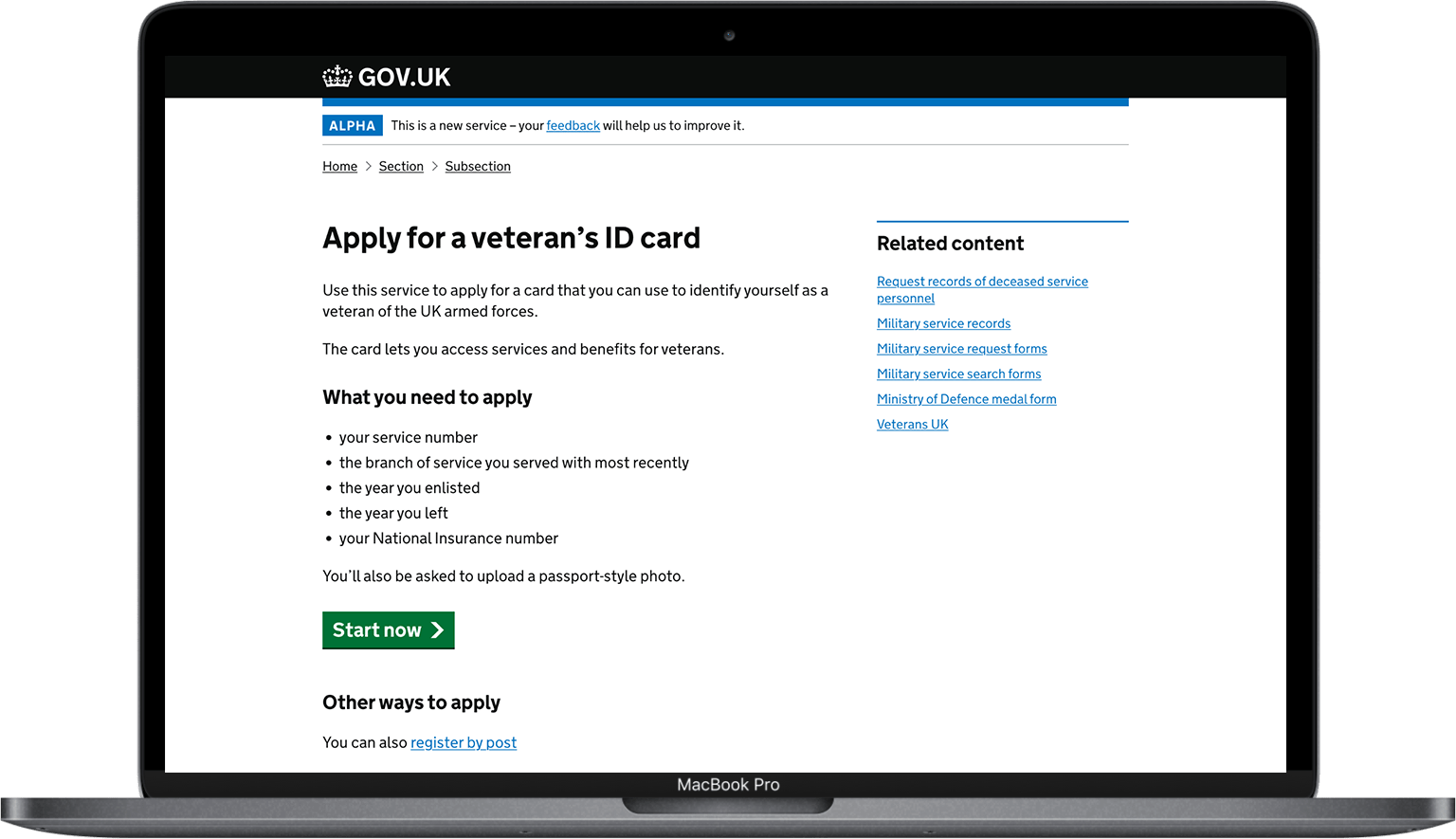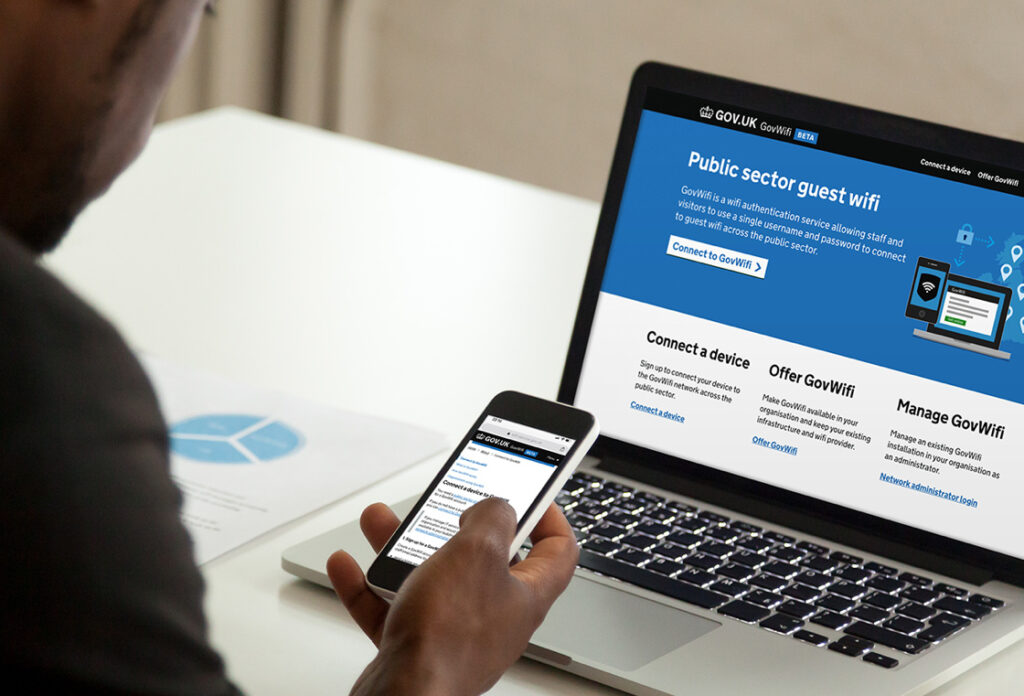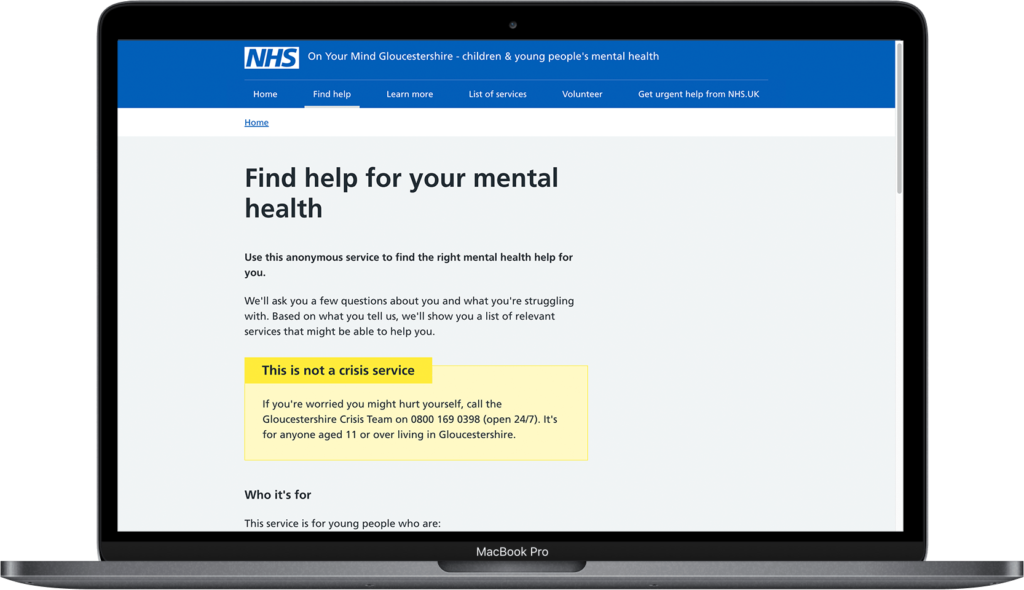Helping veterans access benefits and services
Working with the Office for Veterans’ Affairs and GDS to help veterans access the benefits and services they’re entitled to quickly, easily and consistently.

The project
In recognition of their service, veterans in the UK are entitled to prioritised access to benefits and services. Working with the Office for Veterans’ Affairs (OVA) and GDS, we looked at ways to best support ex-service personnel to access the benefits they’re entitled to quickly, easily and consistently.
Our approach
We worked in an agile, scrumban way to build and test prototypes with veterans and those who provide services for them. This let us build on research from a discovery phase and understand veteran’s needs and any wider issues. We spoke to people remotely to make sure we got a good spread across the country and so we could engage with people who might struggle to attend in-person interviews. We also went to drop-in centres in person to meet people that might not be able or willing to engage digitally.
We consulted extensively with the services that need to confirm veteran status, looking at whether it might also be worth scaling and digitising existing services for 3rd parties to confirm veteran status.
We had to consider a wider landscape of factors involved in delivering a service that works for everyone. There were dependencies on other government work that needed to be factored into our work. These included:
- needing access to data that the Ministry of Defence (MoD) holds in legacy systems. As this needs to be very secure, we shared a great deal of evidence around our approach to data security.
- working closely with the team developing GOV.UK One Login – a new digital identity service that’s being developed with the aim of allowing citizens to access all the government services they need to use with one sign in.
- collaborating with different governmental departments (Ministry of Defence as well as the Office for Veterans’ Affairs) that are engaged with defence and ex-defence employees, taking into account and influencing policy to make sure the service meets user needs.
In compliance with the service standard, everything we did was open source and reused existing tools such as GOV.UK One Login, IPV and Notify. Tried and tested patterns and components developed by government departments like HM Revenue & Customs and the Home Office and using the GOV.UK Design System.
“The Veterans’ ID card project is a priority for the Office for Veterans’ Affairs. Passing the Alpha assessment in November was a significant milestone and could not have been done without the support, guidance and expertise from the team at Made Tech. The Made Tech team, working alongside Government Digital Service colleagues, have highlighted the best in agile digital design in government.”
Technology used
Node js:
- GOV.UK Frontend is a Node.js package delivering the Design System
- Certified OIDC FAPI client library available in NPM, providing Passport.js strategy
- Express is a convenient, well-understood framework
Splink:
- Open-source probabilistic record matching tool developed by MoJ
- Python (PySpark) library
Open ID connect:
- GOV.UK One Login is OIDC Provider
Hosting environment:
- Defence Digital’s DevSecOps service (RedHat OpenShift Container Platform)
- Kubernetes implementation
The results
Following a successful alpha assessment, the ‘Apply for a Veteran ID card’ service is now progressing to Beta. This will progress in tandem with the development of the GOV.UK One Login service and be a great testing ground for that service’s ability to allow users to access government services more easily.
We’re delighted to have contributed to addressing a long-standing issue for veterans as part of the government’s pledge to make sure they receive the recognition they’re due. The whole team was committed to understanding veterans’ needs as fully as we could to make sure we designed a service that would truly make their lives easier.
Case studies

Delivering GovWifi for the Government Digital Service
We turned a beta product into a secure and scalable solution that supports 200,000 active weekly users.

Making NHS Gloucestershire’s mental health services more accessible to children and young people
Made Tech worked closely with the NHS in Gloucester to digitalise access to over 100 mental health support services.




